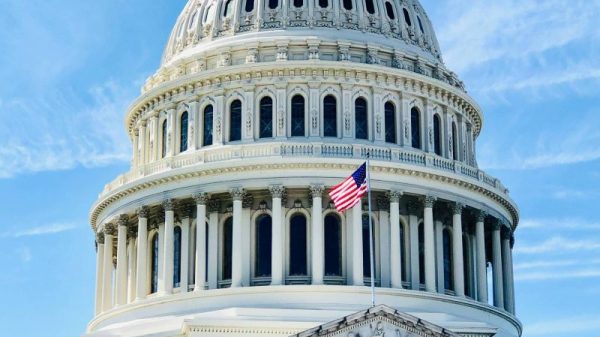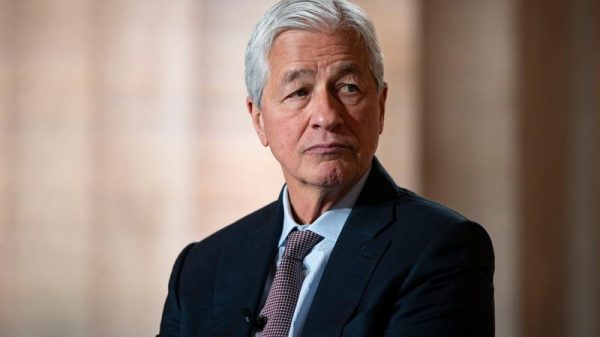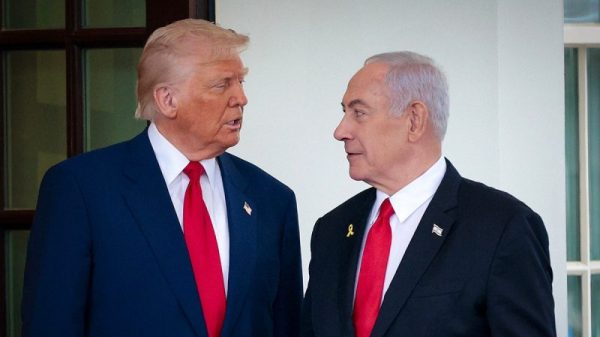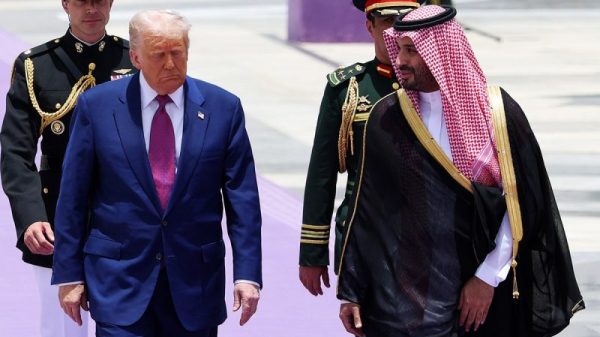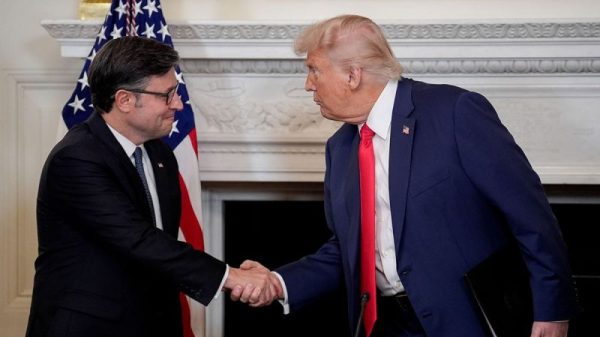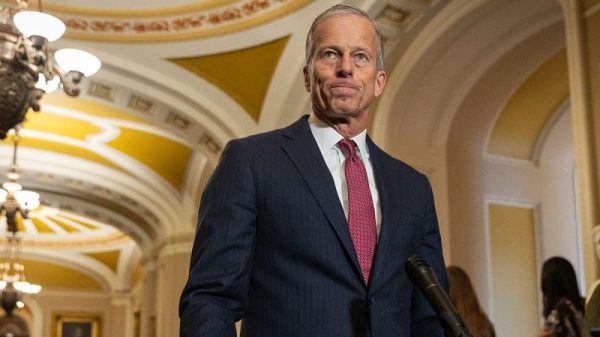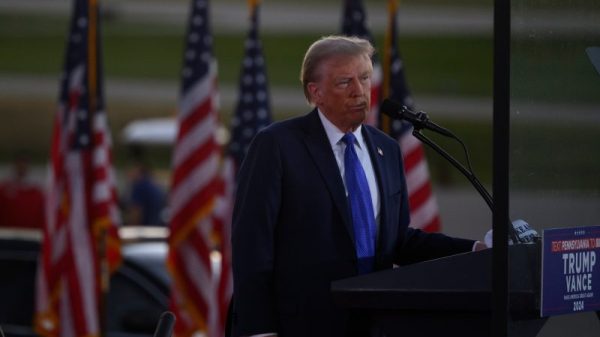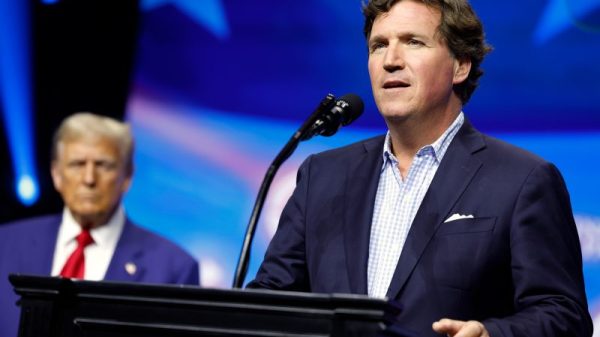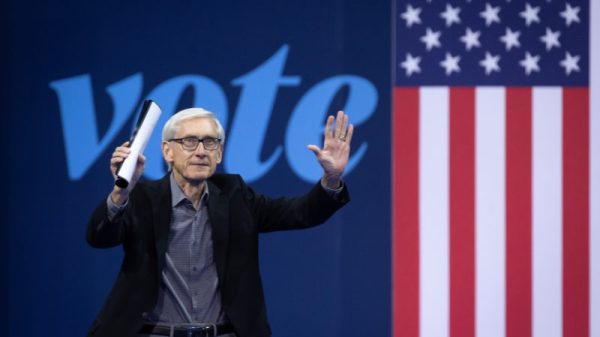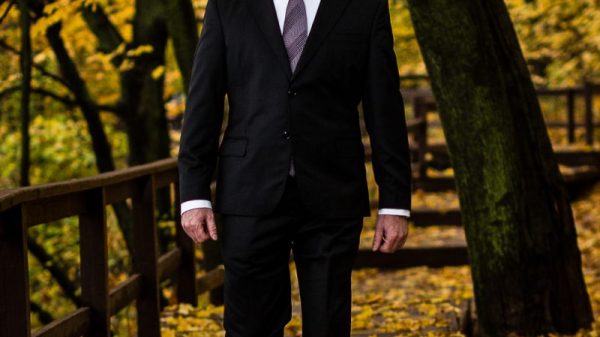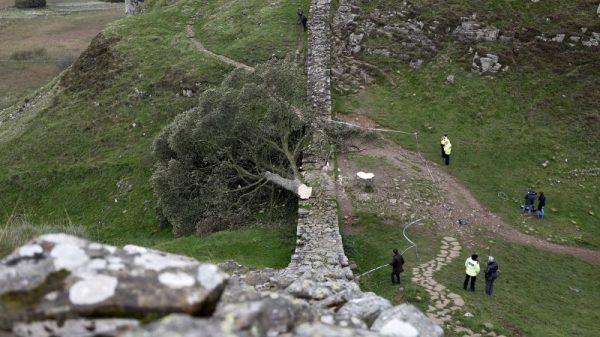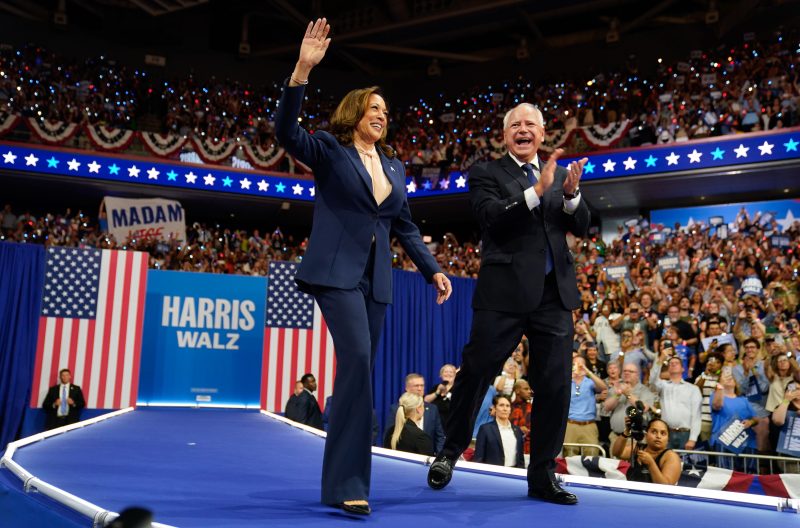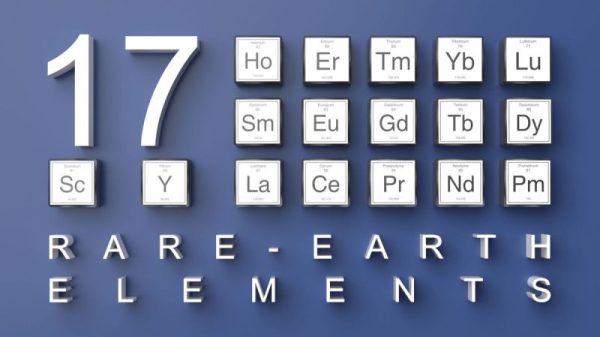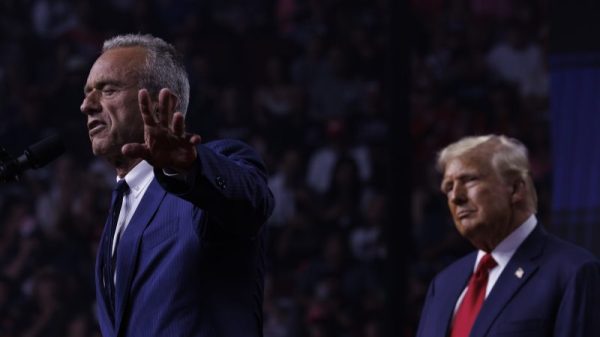Vice President Harris on Sunday took the final step of her running-mate selection process, interviewing the three men who had survived her team’s vetting process — Gov. Tim Walz of Minnesota, Gov. Josh Shapiro of Pennsylvania and Sen. Mark Kelly of Arizona. But by then, the selection was in fact largely down to two.
Walz and Shapiro had risen to the top of the pool, according to a person familiar with the process, who spoke on the condition of anonymity to discuss a confidential matter. While Kelly, a former fighter pilot and astronaut, had a stellar resume, some on Harris’s team thought he was an uninspiring public speaker who would not generate excitement on the campaign trail.
“Shapiro could raise lots of money, very sharp politically and well-versed,” the person said. “And Walz was regular-guy sharp. His appeal will be that he could be anyone in America who became vice president.” After those interviews on Sunday, Shapiro told the vice president’s team that he was struggling with the prospect of leaving his job as governor if he was chosen, according to another person close to the selection process.
By Monday night, Harris had made her decision: Walz would be her running mate.
Harris’s selection process was the fastest in recent memory, unfolding against a backdrop of political turbulence and forcing her to make arguably the most important decision of her candidacy at the same time she was racing around the country introducing herself to voters. What ultimately sold Harris on Walz, according to people familiar with the process, was their easy rapport as well as his governing record in Minnesota.
In some ways, the process began even before Harris rose to the top of the ticket. In the days and weeks after President Biden’s halting debate performance on June 27 — as he doubled down on his insistence that he would remain in the race despite rising backlash from his party — some Democratic donors grew restless and began funding a preliminary process for vice-presidential picks if Biden did decide to exit the race. The effort was independent of the Biden campaign and the Democratic National Committee.
After Biden stunned the political world on July 21 by announcing he would “stand down,” he endorsed Harris, and within days, attention turned to her running-mate choice.
Former attorney general Eric Holder’s firm, Covington and Burling, began drafting lists of potential running mates — almost all of whom were White men, reflecting an assumption that voters would prefer a White male running mate for the first woman of color leading a major-party presidential ticket. Ultimately they concluded that nine prospects were worth vetting.
On July 23, just two days after Biden stepped aside, Walz appeared on MSNBC’s “Morning Joe” and made a seemingly off-handed comment that may have sealed his future. “It’s true: These guys are just weird,” Walz said of Republican nominee Donald Trump and his allies. “They’re running for the he-man woman haters’ club or something.”
The notion that Trump, his running mate Sen. JD Vance (Ohio) and their allies were “weird” instantly caught on among Democrats and resonated enough among swing voters that some Republicans felt the need to push back. And it captured what the Harris team liked about Walz: His ability to take on Trump with a lighter touch, landing a hard blow without thundering about existential threats.
Six days later, on July 29, two of those being considered — Michigan Gov. Gretchen Whitmer and North Carolina Gov. Roy Cooper — took themselves out of contention, saying in different ways that they wanted to focus on their home states.
The Harris team had set itself a deadline of Aug. 7 to make the choice, to avoid running afoul of early ballot requirements in some states. And with just over a week to go, the list of finalists was down to six: Walz, Kelly, Transportation Secretary Pete Buttigieg, Shapiro and Govs. Steve Beshear of Kentucky and J.B. Pritzker of Illinois.
Ten Harris aides participated in the initial vetting process, including campaign chair Jen O’Malley Dillon, top adviser Cedric L. Richmond and campaign chief of staff Sheila Nix. Soon enough, Democratic donors and groups began jockeying aggressively for their preferred candidates and attacking those they opposed, sometimes through leaks.
Shapiro quickly emerged as a lightning rod. Progressive groups criticized comments he’d made last spring comparing pro-Palestinian college protesters to the Ku Klux Klan and urging the University of Pennsylvania to forcefully break up their encampments. Teachers unions also voiced concerns about Shapiro because of his support of school vouchers.
The National Women’s Defense League, a nonpartisan group that confronts sexual harassment by political leaders, asked the Harris campaign to consider whether Shapiro had mishandled allegations against top aides last year, when his office paid a $295,000 settlement to a staffer who filed a complaint alleging she was sexually harassed by two of the governor’s senior aides.
Shapiro denounced sexual harassment in a statement by his spokesperson to the New York Times last week, adding that he “was not aware of the complaint or investigation until months after the complaint was filed.”
The Pennsylvania governor’s supporters argued that he was a powerful, charismatic speaker, and that his centrist politics were just what the Democrats needed to attract swing voters. It remains unclear whether the outside complaints affected Harris’s decision to pass him over; a campaign official said her rapport with Walz, more than any opposition research, was the key factor in her decision.
Kelly, a retired astronaut and Navy captain, faced opposition from some labor groups after he opposed pro-union legislation in Congress. While Harris aides felt Kelly had a stellar resume, some feared he was an uninspiring public speaker who would not generate excitement on the campaign trail, according to two people familiar with the process, speaking on the condition of anonymity to discuss a sensitive matter.
Something of an unofficial lobbying campaign emerged for Walz by Democrats in Congress who had served with him when he was in the House from 2007 through 2019. Sen. Tina Smith (D-Minn.) said she shared “what I know about him as a leader and as a man” with people advising Harris, in the hope it would be helpful to the vice president.
“The guy just has an infectious joy in the work that he does. He takes the work that he does really seriously, but he doesn’t take himself really seriously,” Smith said in an interview. “He seems like a regular person because he is a regular person.”
Sen. Bernie Sanders (I-Vt.), who served with Walz in the House and pushed for his selection, said Walz’s candidacy was boosted by strong support from labor unions.
“The reason I like him — it’s not complicated — I think he is kind of a down-to-earth guy, plain-spoken. I think he communicates well with working-class people,” Sanders said in an interview. “I like the idea that he is a former teacher, public school teacher, the fact that he’s a football coach, he’s a veteran. And more than being a veteran, when he was in the House, he was a strong advocate for veterans’ rights.”
And in fact, Walz had been on the radar of the Biden-Harris team for a year. Not many Democratic leaders had braved the Iowa County Fair last August, when a primary battle was raging between Trump, Florida Gov. Ron DeSantis and other Republicans, all of them aiming harsh rhetoric at each other — and at Democrats.
But Walz showed up, at the request of the Biden campaign. And the Minnesota governor made a surprising splash at the fair, chomping a pork chop on a stick, talking up the administration’s accomplishments, teasing that his state’s fair was superior and generally needling Republicans.
Most Americans didn’t notice — but top Biden-Harris advisers did, and that’s when their “Walz obsession” began, according to one campaign official.
By Thursday, the vetting process, led by Holder and former White House counsel Dana Remus, concluded, setting the stage for the final intensive days of the selection process. Holder and Remus compiled their findings to present to a Friday meeting of a group of Harris confidants, who would then decide who would move on to the final round.
A three-person panel comprised of Richmond, former labor secretary Marty Walsh and Sen. Catherine Cortez Masto (D-Nev.) then interviewed the finalists, who were questioned on specific aspects of their record. Walz, for example, was asked about his handling of the crisis that erupted after the killing of George Floyd in Minneapolis, and Shapiro was quizzed about his views on Gaza and Israel, among many other facets of their records, according to a person familiar with the process, speaking on the condition of anonymity to discuss private conversations.
On Saturday, the panel presented its findings and recommendations to Harris at the vice president’s residence at the Naval Observatory, where she was holed up for the weekend to make her selection.
The outside pressure continued up to the last minute. On Sunday morning, Shawn Fain, president of the United Auto Workers, said on CBS’s “Face the Nation” that his preferred candidate was Beshear, but “we really like Tim Walz from Minnesota also, think he’s an awesome guy for labor, 100 percent behind labor.”
Harris conducted in-person interviews with Walz, Shapiro and Kelly, then held meetings with her closest aides as she zeroed in on her decision.
Her staff prepared campaign materials for all three candidates — including website graphics, videos, talking points and stump speeches — in case her decision went into Tuesday morning.
In the end, Harris was energized by her personal chemistry with Walz, whom she knew from her time as vice president, the people familiar with the process said. He had accompanied her, for instance, when she visited Minnesota in March, becoming the first sitting vice president to visit a clinic that performs abortions.
Harris’s team was also taken with Walz’s background, which they hoped would have a broad appeal in Midwestern states and rural areas of states such as Georgia and North Carolina. Walz is a hunter and gun owner who won a House seat in a conservative-leaning district later captured by Trump. Harris aides also point to Walz’s record in Minnesota, including a social welfare program that provided free lunches to public school students, a ban on junk fees and paid parental leave.
Walz has also spoken about his family’s personal experience with IVF, which he said allowed him and his wife to have one of their two children after they could not conceive for the first eight years of their marriage — a point Harris highlighted in her official announcement, and one that plays into the Democrats’ emphasis on reproductive rights.
The prospects spent Monday awaiting word. Kelly and his wife, former congresswoman Gabrielle Giffords (D-Ariz.), passed the time at their home in Washington as reporters scouted out their place back in Tucson, according to a person familiar with the senator’s journey through the vetting process who was not authorized to talk publicly about it. They watched movies and television together and took a trip to the National Air and Space Museum.
On Tuesday morning, the call came. Kelly had not been chosen. The senator called his core group of advisers and they immediately got to work on a statement conveying support for Walz.
At least initially, Walz’s selection achieved its aim of bringing Democrats together. It drew praise from centrist Sen. Joe Manchin III (I-W.Va.) as well as liberal firebrand Rep. Alexandria Ocasio-Cortez (D-N.Y.). On Tuesday, Ocasio-Cortez mused during an Instagram live about “the last time Senator Manchin and I, respectfully, were on the same side of an issue.”
Sarah Blaskey and Yvonne Wingett Sanchez contributed to this report.



